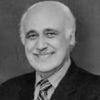Imran Khan is on shaky ground with the Chinese

I was alive when the Civil & Military Gazette (where Rudyard Kipling cut his teeth as a cub reporter) was closed down. I was alive when the Pakistan Times was shut down and its editor Faiz Ahmed Faiz had to revert to writing poetry. I was alive when the magazine Outlook cleared its desks after its courageous owner/editor I.H. Burney conceded defeat. I was alive when the Morning News ran its last impression in Karachi. And I am alive today, to feel the same cold steel scythe of censorship.
There is no government in the history of Pakistan that has not tried to apply censorship, with varying degrees of failure. Press censorship is usually an instrument of war. Here, we keep it oiled, ready for use during peacetime.
Few of our ministers of information have been as forthcoming as the late Altaf Gauhar, once the mouthpiece of President Ayub Khan. In his memoirs, published in 1993, Gauhar mentions how during the 1965 war, “all those lists under which successive governments had debarred certain political activists, poets and writers were withdrawn. Almost instantaneously the official information network was transformed into the voice of the nation”.
Which selected government has not aspired to be “the voice of the nation”? Which has not commandeered the role as the ideological fount of nationalism from which all truth flows? The true test of freedom of speech in any country is if there is freedom after the speech. Saudis learned that lesson as they watched their compatriot — the dissident Jamal Khashoggi — make a fatal visit to their country’s consulate in Istanbul. What emerged was not a chastened journalist but a reminder of G.B. Shaw’s dictum: “Assassination is the extreme form of censorship.”
We in the subcontinent do things differently. In June 1975, during the Emergency declared by Mrs Indira Gandhi, she and her son Sanjay expressed their displeasure with the then minister of information I.K. Gujral. Mrs Gandhi demanded to see the radio and TV scripts of all news bulletins. Gujral protested that even he did not get to see the scripts. “She snapped back that whether he saw them or not, the Prime Minister wanted to see them.”
Pakistan’s new government, like all its predecessors, wants a pliant media to present its performance in as positive a light as credibility permits. It would have the public believe, for example, that the Prime Minister’s recent visit to China was an unmitigated success, that his reception in Beijing by the Chinese minister of transport Li Xiaopeng (the lowest in the list of non-voting alternate members of the 18th Central Committee of the Communist Party) or by the deputy mayor of Shanghai was in accordance with traditional protocol.
His meetings with the Chinese leadership are described as a reaffirmation of Pakistan’s centripetal position in President Xi Jinping’s One Belt One Road policy, and the final communiqué as a tacit exoneration of Imran Khan’s unwise criticisms of CPEC from the roof of his container, repeated and then denied by his adviser on commerce Mr Razak Dawood.
The Chinese may misplace old memories; they never forget them. The Chinese have not forgotten the 1963 agreement by which Ayub Khan gave them Aksai-Chin. They have not forgotten that in 1971 President Yahya Khan facilitated their dialogue with the United States. They have not forgotten that in May 1976 they allowed Mr Z.A. Bhutto to be the last foreign leader to meet the dying Chairman Mao Zedong. They have not forgotten the $64 billion they have extended under CPEC, even slipping under its covers at the last minute Shahbaz Sharif’s beleaguered Orange Line project.
Put that largesse into perspective. According to a recent study, “between 2000 and 2014, China gave about $75 billion, and lent about $275 billion” across the world. And President Xi Jinping will not have forgotten that his visit in September 2014 had to be postponed because a political party now in power had rendered Islamabad a security risk.
China may have a thick wallet and be in a spending mood but the dividends it expects are of cooperation, not criticism, especially not from an “iron brother”. The Chinese no longer use Chairman Mao’s pronouncements as a vade mecum. Pakistani governments should. “Make criticism in good time,” Chairman Mao had advised, “don’t get into the habit of criticising only after the event.”
There is not one thinking person in Pakistan who does not wish every government — elect, select or otherwise — success. Yet experience indicates that our votes are not passes to a better future but season tickets to disappointment.
By arrangement with Dawn

